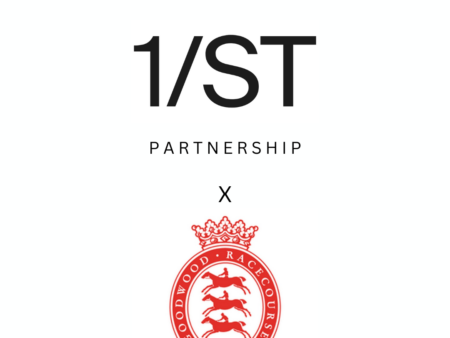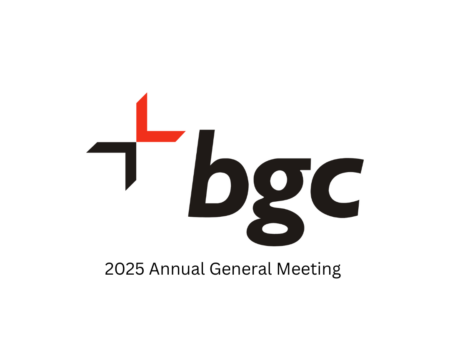Belgium’s political landscape has been shaken by the ongoing investigation into Didier Reynders, who recently concluded his term as the European Commissioner for Justice. Accusations of money laundering have surfaced, centered on his alleged misuse of the Belgian National Lottery system. This development raises serious questions about anti-money laundering (AML) policies within the lottery and gambling sectors across Europe.

Belgium’s Political Turmoil: Former EU Commissioner Didier Reynders Faces Money Laundering Allegations
Allegations Against Reynders: Lottery Transactions Under Scrutiny
Belgian federal authorities recently conducted a series of high-profile raids on properties linked to Reynders, including his residences. These actions are the result of a months-long investigation that gained momentum following his departure from the European Commission, which terminated his immunity from prosecution.
According to investigators, Reynders allegedly used funds of questionable origin to purchase electronic lottery tickets. These purchases, ranging from €1 to €100, were reportedly a method to integrate illicit money into the financial system. The Belgian Financial Intelligence Processing Unit (CTIF-CFI) and the National Lottery flagged these transactions as suspicious, prompting the current probe.
The method outlined by investigators suggests that Reynders would buy lottery vouchers, potentially win significant sums, and subsequently deposit the winnings into his accounts. This cycle allegedly served as a cover for laundering money over a period spanning more than a decade. The former Commissioner now faces the challenge of proving the legitimate origins of these funds.
The Role of the Belgian National Lottery in AML Compliance
The Belgian National Lottery, one of Europe’s most established lottery systems, has been lauded for its robust anti-money laundering measures. However, the Reynders case highlights potential gaps in these safeguards. The National Lottery operates under stringent regulatory frameworks designed to prevent illicit activities, yet even these systems can be vulnerable to exploitation by high-profile individuals.
The involvement of the CTIF-CFI underscores the importance of financial intelligence in combating money laundering. This independent body monitors financial transactions within Belgium and collaborates with the European Lotteries (EL) Association to ensure that all gaming activities adhere to strict compliance standards.
European Lotteries Association’s Commitment to Transparency
The European Lotteries (EL) Association, representing national lotteries across Europe, plays a pivotal role in promoting ethical practices and combating financial crimes within the gambling industry. The organization requires its members to implement rigorous AML protocols, ensuring that their operations remain transparent and accountable.
In recent years, the EL has intensified its focus on AML efforts. The association’s manifesto emphasizes its dedication to public benefit, responsible gaming, and the prevention of financial crimes such as money laundering. These commitments are particularly significant in light of the Reynders case, as they demonstrate the industry’s proactive approach to identifying and addressing potential threats.
Broader Implications for Financial Oversight in the EU
Reynders’ alleged misconduct raises critical questions about the effectiveness of financial oversight mechanisms in the European Union. As a former Belgian Minister of Finance and European Commissioner, Reynders was in a position to influence regulatory policies. His alleged involvement in money laundering activities, therefore, casts a shadow over his political legacy and raises concerns about the integrity of public officials.
The case has sparked broader discussions about the need for enhanced oversight in the financial and gambling sectors. Experts argue that while existing AML measures are robust, continuous improvements are necessary to address evolving methods of financial crime. The Reynders investigation could catalyze policy reforms aimed at strengthening regulatory frameworks across the EU.
What’s Next for Reynders and the Investigation?
The investigation into Reynders’ financial activities is ongoing, with Belgian authorities meticulously reviewing evidence gathered during the raids. Given his status as a former minister, any potential prosecution would require approval from the Belgian parliament. This adds a layer of complexity to the case, as political considerations may influence the proceedings.
Public interest in the case remains high, with many awaiting further developments. The outcome of the investigation could have far-reaching implications, not only for Reynders but also for the broader European political and financial landscape.
Conclusion: The Allegations
The allegations against Didier Reynders highlight the critical importance of robust anti-money laundering measures within the lottery and gambling sectors. As investigations continue, the case underscores the need for transparency, accountability, and continuous improvement in financial oversight. The actions taken by the Belgian authorities and the European Lotteries Association serve as a reminder of the collective responsibility to safeguard public trust in financial systems.
FAQs About Didier Reynders and the Money Laundering Investigation
1. Who is Didier Reynders?
Didier Reynders is a Belgian politician who recently served as the European Commissioner for Justice. He has also held various high-ranking positions, including the Belgian Minister of Finance.
2. What is Didier Reynders accused of?
Reynders is under investigation for alleged money laundering. He is accused of using Belgian National Lottery tickets to launder money over a decade by purchasing electronic lottery vouchers and depositing his winnings into personal accounts.
3. How did the investigation into Reynders begin?
The investigation was initiated after suspicious transactions were flagged by the Belgian Financial Intelligence Processing Unit (CTIF-CFI) and the National Lottery. These findings led to a deeper probe by Belgian federal police.
4. What actions have been taken against Reynders so far?
Belgian federal authorities have conducted raids on properties linked to Reynders, including his residences. The investigation intensified after his term as European Commissioner ended, removing his immunity from prosecution.
5. Why is the Belgian National Lottery involved in this case?
The Belgian National Lottery plays a role because Reynders allegedly used its system to launder money. The lottery flagged several suspicious transactions, which became key evidence in the investigation.
6. What role does the European Lotteries Association play in this matter?
The European Lotteries (EL) Association promotes strict anti-money laundering (AML) policies across its member organizations. The association’s stringent compliance frameworks helped detect the irregularities linked to Reynders’ transactions.
7. What are the anti-money laundering measures in place for lotteries?
Lotteries under the EL Association follow strict AML protocols, including monitoring large or suspicious transactions, ensuring transparency, and reporting anomalies to financial intelligence units like CTIF-CFI.
8. How could this investigation impact Reynders’ career?
The allegations cast a shadow on Reynders’ political legacy and could lead to prosecution, pending approval from the Belgian parliament. The case has raised serious concerns about financial oversight among public officials.
9. What implications does this case have for EU financial oversight?
The investigation highlights potential vulnerabilities in existing AML frameworks. It may prompt the EU to strengthen regulatory policies to prevent similar cases of financial misconduct in the future.
10. What happens next in the Reynders investigation?
The investigation is ongoing. If enough evidence is found, Belgian authorities could seek parliamentary approval to prosecute Reynders. Further developments are expected as more evidence is reviewed.
11. How does this case affect public trust in the lottery and gambling sectors?
The case underscores the importance of stringent AML measures to maintain transparency and accountability. It may lead to heightened scrutiny and stronger regulations within the lottery and gambling industries.

















